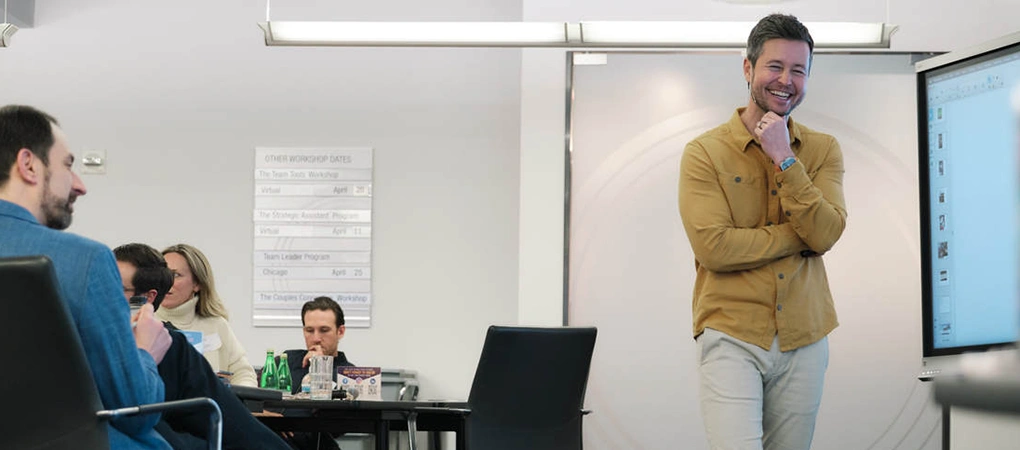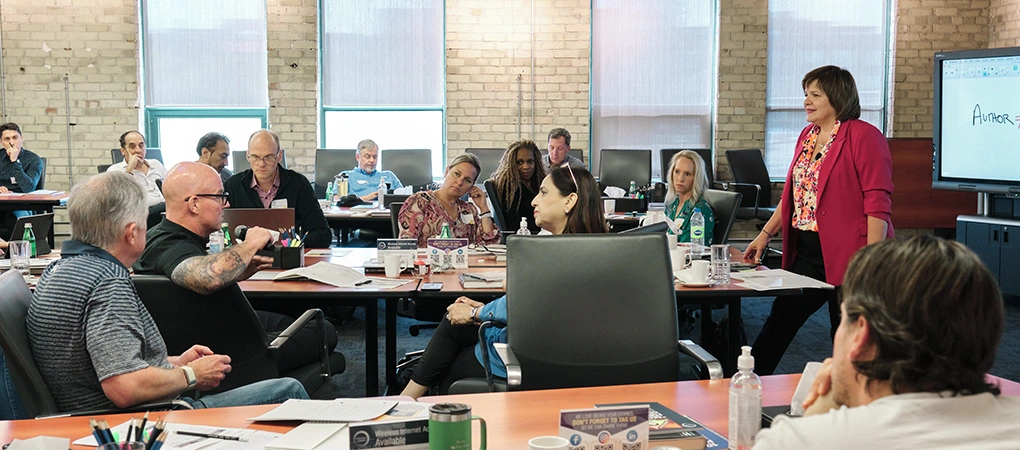It Takes Courage To Say No — Tips For Mastering This Key Skill
Shannon Waller

Listen to the podcast below or subscribe to the Team Success Podcast on iTunes.
The Courage To Say “No”
Let’s start by acknowledging this: Saying no can be hard; it’s so much easier to say yes! In fact, saying no can take a great deal of courage in certain situations.
Think about saying no to a good client. To a team member who is an important contributor to your success. To a family member you love and care greatly about.
Knowing how to say no, having the right words, being able to buy yourself some time, and even having a few strategies to call upon are great tools for mastering this important life skill.
When yes becomes a danger.
Very simply, saying yes, leads to over-commitment. We over-commit in terms of our clients, our families, and our social lives, leaving no time for ourselves. We also over-commit in taking on new projects that might be profitable in the short term, but in the long term don’t actually serve our greater purpose.
We end up with no free time, no time to think, no time for pet projects we’re passionate about. It’s easy to see that there is a big cost to always saying yes.
[bctt tweet=”“There is a big cost to always saying yes.””]
Get clear on your own personal yes zone.
Devote time to understanding the activities and projects you truly love doing and are best at. These activities always give you energy, and there’s constant improvement because there’s passion involved. These activities will give you your best results in any situation.
Two good questions to give you clarity are: “Is this in alignment with my future goals? Does it serve what I’m already up to, or does it interfere?”
A yes where you’re not only intellectually but emotionally committed is what you’re looking for. You’ll know. It’ll be an emphatic, when-do-we-start YES! (Caution: Sure and OK are definitely not in this realm!)
When you’re clear and have actual criteria for what to say yes to and what to say no to, when you appreciate what you’re best at and what you have or don’t have the mental energy for, you can really keep yourself out of “yes trouble.”
Get clear on what to say no to.
Just as appreciating your own best talents is important, appreciating what you’re just competent at or even incompetent at is important too.
Putting in the time and effort but lacking the talent or skills needed to get the work done successfully invariably creates a mess. We procrastinate because we actually dislike doing these things in the first place, and, even worse, we wind up not doing what we said we would do, which is a mess in itself.
Once you buy into the importance of learning how to say no, it’s one of the best conversations to take to your team. Ask them what they find it hard to say no to. Not only do I think it’s important for them to be able to say yes to the right things and no to the wrong things, but when they understand your yes and no zones, they’ll be your and your company’s best line of defense.
M = O – C: What a mess!
Most of us can think of a situation where we said yes to something out of a sense of obligation, but because we lacked a real sense of commitment, the whole situation became a giant drag on our time, energy, and emotions. It might even have turned into a mess, which then required cleaning up.
At Strategic Coach, we have a great definition of a mess that can keep you out them quite successfully. The formula to keep top of mind is M = O – C:
A mess equals an obligation without a commitment.
A clue that can instantly alert you to the fact that you’re heading into a mess is the word “should,” which is inevitably tied to the word “obligation” — fair warning that the situation, for one reason or another, is one in which you should not be involved.
If “should” pops into your conscious thinking, pay attention to it and think long and hard before you jump in and say yes.
Three strategies: how to say no gracefully.
- Take a lighthearted approach. One of my favorites is: “My security clearance doesn’t go that high.” In a similar vein: “That’s above my pay grade.” Having these in my back pocket makes me confident about areas where I know I’m strong and will create value, but also very humble about the areas where I know I might make a mess of things.
-
Buy yourself some time. Admittedly, I’m one of those people who tends to answer quickly, which has gotten me into trouble over the years. I had to learn that asking for time to think about the request is OK.
I usually say, “I need to think about that. I have a lot going on right now, and to do justice to your project, I need to make sure that I can give it what it’s due. Let me look at my commitments, and I’ll get back to you.”
I find that approach to be respectful, kind, honoring, and honest, but being honest with yourself is the key.
- Ask for a detailed email. This is a failsafe strategy to see whether the person asking is truly committed to their idea, or whether they’re just trying to hand it off to you! Ask the other person to send you a detailed email on the project — exactly what you need to get done and by when, who you’ll be working with, and so on — and you’ll almost never hear back.
Know that it takes courage to say no and honor that.
It can be especially scary if the person is important to you, if there’s money at stake, or if it’s a personal relationship.
You really want to make sure that whatever you’re saying yes to is a right fit — for your company, your family, and your future. That’s where I think I most often find the courage and say, “This looks like a really interesting project; it’s just not for me right now.”
Learning how to say no gracefully requires that you acknowledge that the scariness of saying no is real — it does take courage. This is the key to developing the ability to confidently say no when it’s not serving you, your goals, and the bigger future you see ahead.
[contentblock id=kp-ts]







